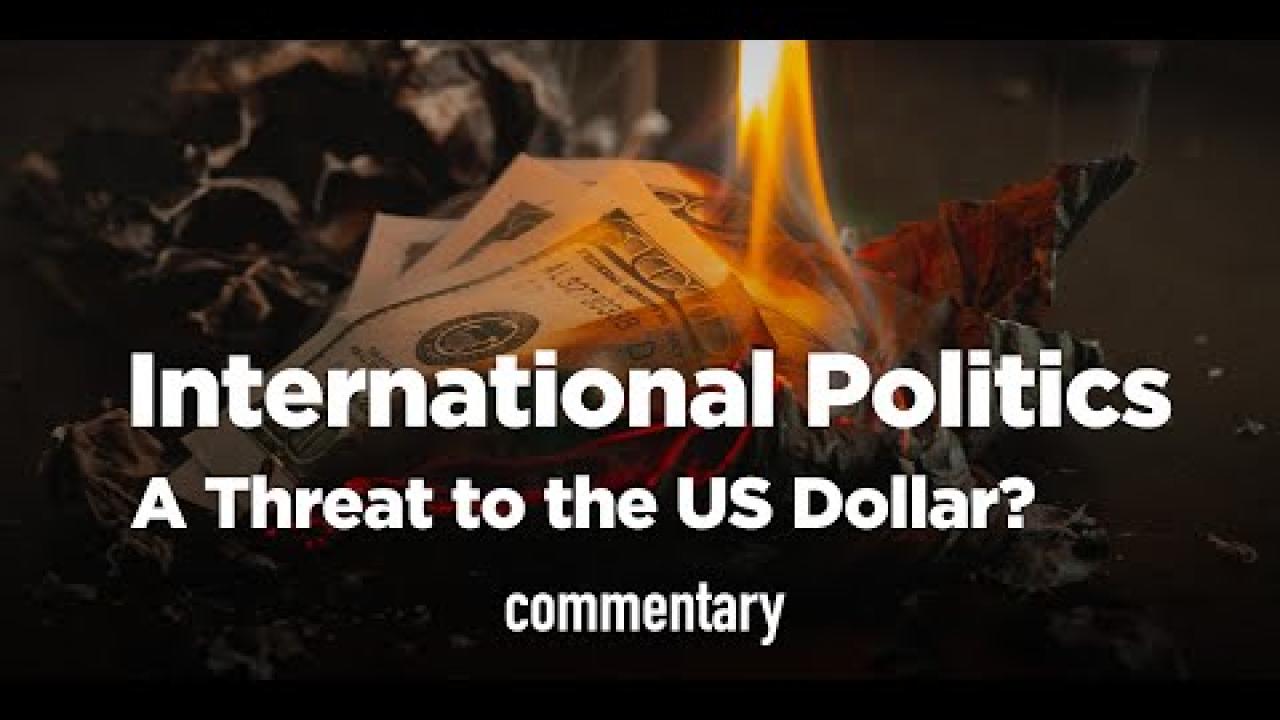
International Politics: A Threat to the US Dollar?
The US dollar has been a major currency of choice since the end of World War II. Despite a series of crises both domestic and foreign, the currency has not only prevailed, but has grown in dominance. However, more recently, we have seen the appeal of the US dollar changing, due to political and not financial reasons.
The US dollar has been a major currency of choice since the end of World War II. Despite a series of crises both domestic and foreign, the currency has not only prevailed, but has grown in dominance.
Cracks in the strength of the US dollar began to surface in the late 1960s and 1970s as a result of excessive spending on the Viet Nam War and President Nixon's decision to detach the currency from the gold standard. But there were also major wins for the currency. After the Arab Oil Embargo of 1973–74, the US established an arrangement with Saudi Arabia to provide military support in exchange for crude oil transactions to be priced in US dollars, and for the purchase of US Treasury securities. This not only ensured strong demand for the US dollar, but helped to further embed its role as a global reserve currency as held by central banks.
In addition, US financial markets innovated in the mid-1970s by introducing derivative products which were primarily priced in US dollars. These financial instruments have had incredible growth and appeal since the 1980s.
The US federal government began to incur significant debt throughout the 1970s and this increase in debt was supercharged through Reaganomics, where debt now breached $1 trillion in 1982, doubled to over $2 trillion in 1986, and rose to over $3 trillion by 1990. What is the National Debt Year By Year From 1790 to 2019? | TheStreet
Reaganomics fostered tax cuts which were not truly covered by increasing tax revenue, leading to substantial budget deficits that have rippled throughout government ever since. Some were legitimately concerned about the increasing debt levels since it would undermine the faith in the value of the dollar. However, the resulting booming US economy attracted more foreign investors interested in capitalizing on US financial prosperity, helping the dollar.
The US dollar's dominance worldwide and the large amount of treasury debt were both attractive and appealing to the global marketplace. Foreign investors could achieve a rate of return above the rate of inflation and would be able to shift investments throughout the world, thanks to the tremendous liquidity of the currency. Whenever a crisis developed, including that of 9/11, foreign investors would flock to US investments as a safe haven, even if there were concerns about the future of the US economy and the new levels of US federal debt.
However, since the advent of the Russia-Ukraine War, the appeal of the US dollar is changing, due to political and not financial reasons. The European Union or EU, and the G7 (Canada, France, Germany, Italy, Japan, the United Kingdom and the United States) have responded to Russia with sanctions and other punitive measures, including political isolation and the possible seizure of assets. Countries outside of this group have become particularly disturbed by these developments. The aggressive nature of the EU and the G7 led by the US has been pushing other countries to seek an alternate system of finance and economic cooperation, in case they may one day also become a target for some unforeseen reason. Other nations, including China are now conducting transactions in currencies besides the US dollar (including that for oil trade) and are reducing the investment in US Treasuries. Central banks are also replacing a substantial part of their US dollar holdings with gold.
The loss of the US dollar's dominance will not happen overnight, but we can now see a trend that may be difficult to reverse. This will add to inflationary pressures as US dollars migrate home from abroad, and lead to higher US interest rates. The political headwinds created by short-sighted government actions are now undermining what otherwise has been a good financial proposition for many decades.
Check out our video, "Supply Chain Shortages". You will find the link in the description below.